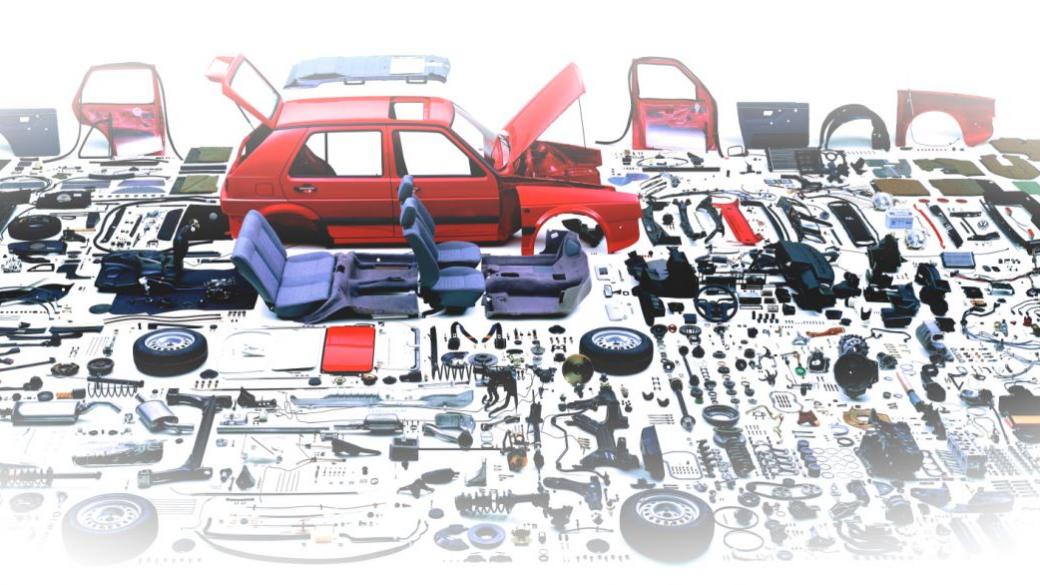Automotive industry - the next big success of Bulgarian economy
Although the sector has experienced significant growth in turnover, employment and value added, it remains a modest innovator

Since 2004, the team of the Applied Research and Communication Foundation has been preparing the Innovation.bg report, which provides a reliable annual assessment of the innovation potential of the Bulgarian economy and the state and opportunities for development of the innovation system. The leading topic of Innovation.bg 2017 is the technological commitment of the national economy on a European and global scale. Special emphasis is put on the automotive and the related industries. The report was presented at the National Innovation Forum, organized by the Applied Research and Communication Foundation, ARC Consulting, Enterprise Europe Network - Bulgaria, EC Representation in Bulgaria, Innovation Centre of BAS with the support of the Directorate General for Internal Market, Industry, Entrepreneurship and SMEs of the European Commission, Executive Agency for SMEs at the European Commission and in media partnership with the Bulgarian National Television, Economy magazine and Economic.bg.
According to the Innovation.bg annual report, the automotive sector has grown three times in terms of turnover, assets and number of employees, and four times in terms of value added. With a total turnover of more than EUR 2 billion and more than 33,000 employees in approximately 170 enterprises in 2016, it has the potential to rank next to the ICT sector in the economy as to value added.
Why is the automotive sector in Bulgaria becoming an increasingly attractive centre for foreign investments and innovations? According to the Innovation.bg report, for the last 10 years, the automotive production has produced value added per employee higher than the average for the non-financial enterprises. The sector formed about 2% of the total turnover, value added and employees in the non-financial enterprises in the country in the last year.
Some of the largest suppliers of worldwide automotive manufacturers, such as General Motors, Daimler, Volkswagen, BMW, Audi, Groupe PSA, Renault, Ford, Fiat, Volvo, etc. are already working in Bulgaria. For the last 5 years, more and more foreign companies have built production bases, while others have expanded their activities (Standard Profil, SE Bordnetze, Sensata, Kostal, Yazaki, and Teklas has its fourth factory in Bulgaria).
According to available data, approximately 170 enterprises operate in the sector. In 2018, their number will increase since several foreign companies have reach a market research stage or have already announced their intention to build production bases in our country - for example, a Chinese manufacturer of alloy rims is researching the market in Bulgaria and several neighbouring countries. It is expected that the German company Leoni, one of the world leaders in the production of cables and cable systems for cars, will start the construction of a new factory in Pleven in 2018. The large manufacturing enterprises are being built outside the largest cities of the country and provide sustainable and relatively high remuneration for the respective regions.
Experts of the Applied Research and Communications Foundation believe that in the future, the automotive sector may take place next to the ICT sector, which provides 4% of the revenue and 9.3% of the value added in the economy. Its share in total exports reached 14% in 2016, the growth being mainly due to an increase in the export of automotive electronics.
The main advantages that attract foreign investments in the automotive sector are mainly the low labour cost, the relatively high quality of specialists in areas such as machine building, ICT and chemical processes, macro-financial sustainability, a high share of Bulgarian students graduating abroad, and especially in German-speaking countries. Companies offer jobs to both low- and medium-skilled professionals and to highly qualified specialists. The introduction of dual learning into secondary schools in Bulgaria in the last 3 years has facilitated these processes. According to various estimates, the employed foreigners in the sector are between 4% and 10% of the total number of employees. Branch associations, such as the Automotive Cluster Bulgaria, as well as the companies themselves, are making serious efforts to improve the qualifications of their staff. As a result, the average produced value added per employee for the ten-year period from 2007 to 2016 is more than EUR 15,000 per employee in the automotive and more than EUR 29,000 per employee in the related enterprises. The automotive industry ranks among the second half of the economic sectors as to value added per emploee, while automotive-related enterprises rank second among all economic sectors.
For automotive suppliers, geographically, Bulgaria shortens delivery periods to major European car manufacturers to less than a day. This was also one of the main reasons for the shift of suppliers from China and other Asian countries and their redirection mainly to countries in Eastern Europe.
The news about the Automotive sector is not entirely positive. At the beginning of 2017, Litex Motors, the only automotive assembler in the country, announced insolvency. Companies in the sector remain with low research and development activities (R&D) and innovation intensity. An exception is made by some of the leading ICT and other companies in the automotive-related group, but the automotive industry itself remains a modest innovator as a whole. “The innovations are mainly in the introduction of new production processes - in the construction of new or renovation of the existing production bases of foreign enterprises in our country. Last year, Teklas Bulgaria announced its intention to open a fifth plant and an R&D centre. However, our country has not yet managed to position itself as an outsourcing destination for R&D and innovation intensive production, as is the situation in the ICT sector. However, given the history of the Bulgarian ICT sector and the role of its automotive-related enterprises, it can be noted that the automotive sector has the chance to establish the country as appropriate for innovation intensive industry for the next 5 to 10 years, "says Prof. Teodora Georgieva from the Applied Research and Communication Foundation.

 Maya Tsaneva
Maya Tsaneva